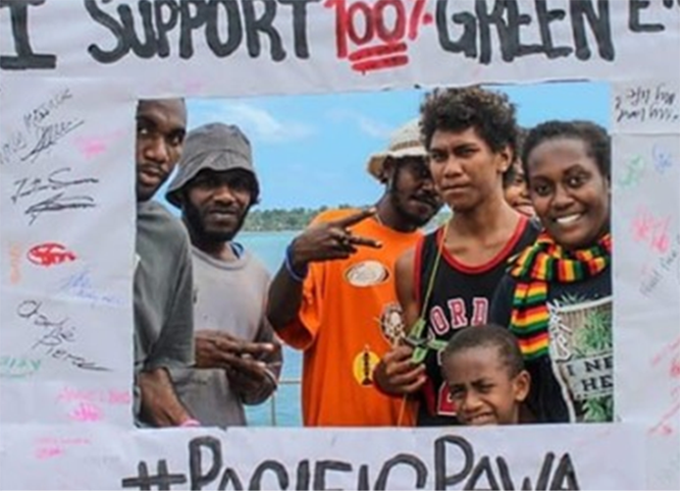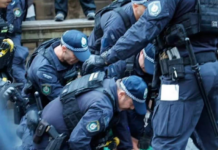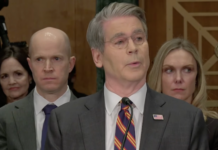
Pacific Media Watch Newsdesk
Eighteen leaders from the Pacific region met for 12 hours at the 50th Pacific Islands Forum meeting with Australia holding out on language that duly recognises the “climate crisis”.
Despite two strong diplomatic declarations – the Nadi Bay Declaration on the Pacific Islands Climate Change Crisis and the Tuvalu Declaration on Climate Change for the Survival of Pacific Small Islands Developing States – being made by Pacific Island states within two weeks of each other, the Australian government has turned a blind eye to its closest neighbours’ plea for an end to the coal industry.
Australia’s coal policy and its use of carry over credits to fulfill its obligations under the Paris Agreement have come under fire and been major points of contention at this year’s 50th Pacific Islands Forum (PIF) Meeting in Funafuti, Tuvalu.
Both declarations strongly call for Australia to commit to urgent climate action, as the effects of the climate crisis become more apparent on a daily basis.
In response to Pacific Island states, which have considered Australia as the “big brother”, Prime Minister Scott Morrison has announced that it will provide A$500m over five years in climate resilience and adaptation funding for the region.
“Australia is supposed to be an ally for the Pacific, and their inaction in a time of dire need is appalling,” said Fenton Lutunatabua, 350 Pacific managing director.
“This funding support is being marketed as a solution, but in fact is a diversion of funding that was already allocated for supporting the Pacific Island states.”
Australia’s aid ploy
Australia’s ploy to use aid as a means of negotiating in the Pacific is failing, with Pacific Island leaders literally stating that they do not care about the money anymore.
The Prime Minister of Tuvalu and chair of the Pacific Islands Forum said during the PIF meeting on Tuesday that channeling aid money to the Pacific was in no way a compromise to open new coalmines and continue with unregulated emissions.
“Pacific Island leaders have stepped up their game significantly because for us it is a matter of survival and they have committed to holding industrialised, coal-producing nations to account,” said Patricia Mallam, senior communications specialist for the Pacific.
“The appalling fact in all this is that Australia is granted a seat at the same PIF meeting table as nations literally struggling to protect the lives and cultural integrity of their people.
“Australia bullies its way through negotiations, attempting to mask the gravity of the climate crisis on paper – when the visible proof in our lives shows otherwise.”
Pacific Island leaders had paved the way for polluting countries to take more concrete steps towards recognising that the climate crisis was real, she said.
The fact that Australia continued to disregard the science that proved this, and carried on with allowing the coal industry to prosper was “a slap in the face of its family in the Pacific”.
“We share the same part of the planet, in close proximity to each other, so taking action to save the Pacific pretty much means saving your own people. A person of authority in a position to make a difference, who compromises the wellbeing of their very own people is not worthy of being considered a leader,” added Mallam.
Key examples of leadership across the Pacific include:
- The Marshall Islands becoming thefirst country in the world to update and strengthen its Nationally Determined Contribution (NDC) to the Paris Agreement.
- The Republic of Fiji holding the presidency of COP23 through 2017-2018 and having recently announced that it will introduce aClimate Change Act, one of the world’s most ambitious legislative programmes which includes tighter restrictions on the use of plastics, a framework for Fiji to reduce its emissions to net-zero by 2050, the introduction of a carbon credits scheme and the establishment of procedures for the relocation of communities at risk from the adverse effects of the climate crisis.
- Tokelau announcing the launch of its Fakaofo Wind Turbine Project, situated on the southernmost island of Tokelau. The viability of this innovation is being tested for urgent climate action.
- More climate stories
- More Forum stories












































